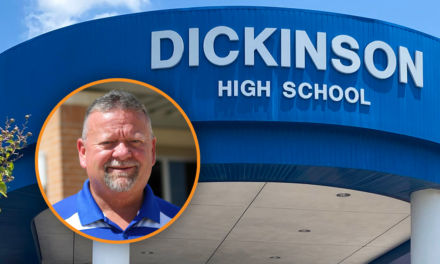High school sports are more than just games; they’re vital for fostering school spirit, community cohesion, and student development. However, the success of these programs often hinges on effective marketing to ensure robust community engagement and support.
Marketing high school sports programs requires a deep understanding of the local community, effective communication, and a commitment to showcasing the value of sports. By implementing these strategies, schools can enhance support for their sports programs, creating a vibrant, engaged community of fans, athletes, and supporters.
Marketing 101: Understand Your Audience
The foundation of any successful marketing campaign is understanding your audience. For high school sports, this audience includes students, parents, alumni, and local sports enthusiasts. Tailoring your marketing efforts to address the interests and needs of these groups enhances engagement.
Effective audience segmentation can significantly increase the impact of your marketing. Personalized messages for parents, exciting content for students, and value-driven propositions for local businesses can transform your sports marketing efforts. Engaging stories of teamwork, perseverance, and achievement resonate well across all segments, creating a unified support base.
Knowing your audience and what drives them to attend games is key. Focus on creating a community around your sports teams, making every game feel like a homecoming.
Communication Is Key
Consistency and clarity in messaging are paramount. Utilizing various channels — social media, local newspapers, and school announcements — ensures widespread reach. Tailoring the tone and style of your messages to fit each platform maximizes engagement.
Social media platforms offer a dynamic way to connect with the community, showcasing live game updates, behind-the-scenes content, and player achievements. Local media partnerships can provide broader coverage, while school platforms offer a direct line to students and parents.
Your social media strategy should revolve around storytelling. Highlighting athletes’ hard work and dedication will help significantly increase attendance at games.
Engaging The Community Through Events
Creating events beyond regular sports matches can significantly boost community involvement. Events like “Meet the Team” nights, sports clinics for local children, and charity matches not only promote the sports program but also build a sense of community.
Successful events often feature interactive elements, such as autograph sessions with athletes or skills competitions, allowing fans to experience the excitement of high school sports firsthand.
An annual Family Sports Day has the potential to become a community highlight. It’s a fantastic way for everyone to engage with athletes and coaches, fostering a deeper connection.
Highlighting Student-Athletes’ Success
Acknowledging the achievements of student-athletes both on and off the field plays a crucial role in effective sports marketing. Public recognition can motivate athletes, engage the community, and highlight the program’s positive impact.
Utilizing local media stories, social media spotlights, and school award ceremonies to celebrate these successes ensures that the achievements of student-athletes are recognized widely.
Celebrate your students’ achievements is a primary key. It not only motivates athletes but also shows the community the value of the school’s sports programs.
Secure Local Business Partnerships
Partnerships with local businesses can provide essential support for high school sports programs. These collaborations can offer financial backing, equipment, or services in exchange for advertising opportunities, creating a mutually beneficial relationship.
When approaching local businesses for partnerships, focus on the mutual benefits. Highlighting the visibility and positive community impact associated with supporting high school sports can be compelling.
A partnership with local businesses can be instrumental in funding sports programs. It’s a win-win, providing businesses with visibility and schools with much-needed support.
Continuous Improvement And Marketing Feedback
Feedback is a valuable tool for refining marketing strategies and events. Engaging with the community to gather insights can lead to more targeted and effective marketing efforts.
Surveys, social media polls, and community meetings can be effective ways to collect feedback. This information can guide improvements in marketing strategies and event planning.
Regularly seek feedback from the community. It helps athletic directors understand what works and what doesn’t, allowing everyone involved to continuously improve marketing efforts.










